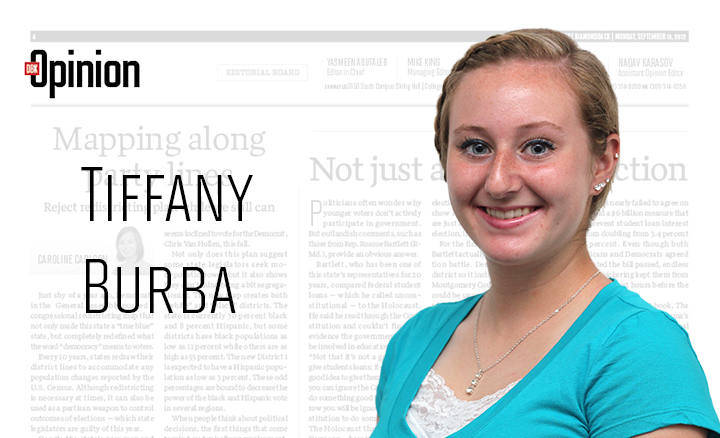
Senior government and politics major
I was sitting in Ms. Harrison’s second grade class, idly organizing the folders in my desk, when al-Qaida launched its terrorist attacks on American soil.
The day itself was nothing spectacular for me — as authority figures in an elementary school, the staff went about their usual ways of concealing the truth based on their judgments of what was appropriate for children to hear. If she couldn’t even mention reproductive health without signed parental consent waivers, there was no chance our teacher would explain that a heinous act of terrorism had just destroyed some of our most important government buildings, killing thousands of civilians.
Our daily routine was shockingly normal, except that every few minutes, the principal’s secretary paged our class over the loudspeaker. Each time, she requested that a student report to the front office for his or her mother to take him or her home. One by one, my classmates left until there were only 10 of us remaining. We were all jealous of our friends who got to leave.
The cafeteria looked empty during lunch, and we were restricted to indoor recess, despite the perfect September weather. I later learned some of our Frederick County schools were on partial lockdown because of our proximity to Fort Detrick. As one of the closest bioresearch centers to Washington, it was a likely target for further attacks. Any explosion could unleash viruses and contaminated cells from the storage compound.
We were still ignorant to cynicism at that age. Rather than worry, we all hoped to be called next so we could spend a pleasant afternoon with Dad, watch cartoons and play at home.
I was surprised when my then-stay-at-home mom never came to get me, leaving me to ride my half-empty school bus the usual half-hour route home in the late afternoon. She later told me there was nothing at our house that would have protected me from a stray plane or explosion, and that the school building was probably the safest place for me to be during the day.
Although I lived through what was arguably America’s worst moment in recent history,I remained disconnected from it. I was far too young to be stricken by national grief, and no one in my family was directly affected by the plane crashes or ensuing war.
When older folks who lived through the Kennedy assassination and 9/11 are interviewed on TV, they demonstrate a genuine sense of connection with their country. Younger generations (mine included) appear indifferent by comparison.
In a few years, our university will accept students who had not even been born when the attacks occurred. To them, 9/11 is just another troubling historical event like slavery, the Holocaust or World War I. They may feel a retrospective sense of artificial sympathy for the people involved, but any emotional connection will probably be lost to them, as it was to me.
In an increasingly global society, it is difficult to maintain a sense of identity and self. Patriotism, however, is not something we can afford to sacrifice. Even future generations can feel the impact of tragic events if they are united by a love for their country. Through this love, we can collectively feel the pain of history within us.
While our country isn’t perfect, it’s the greatest place on Earth to call home. Acknowledging that helped me to finally feel the overwhelming anger of a great nation shocked by an act of downright evil.
This anger tells me I will always be proud to be American.
Tiffany Burba is a senior government and politics major. She can be reached at tburbadbk@gmail.com.



